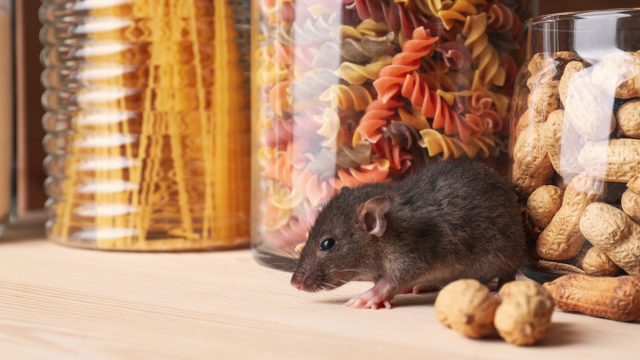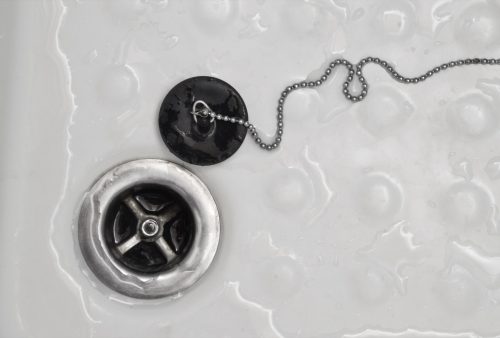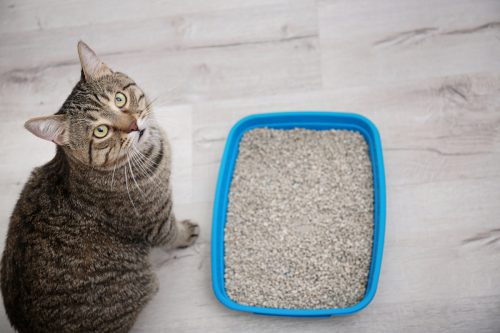It’s Rat Season—Here Are 8 Ways to Keep Them Out of Your House

Have you been seeing more rats than usual? That’s because it’s rat season. Like snakes and other rodents, once cooler temperatures arrive, rats start thinking about escaping the cold and finding food sources for the winter ahead. Additionally, rats reproduce throughout spring and summer, so there’s a rat population boom in the fall, according to Charles van Rees, conservation scientist and editor-in-chief of Gulo in Nature.
“For the same reason, many of these rats will be young ones striking out on their own for the first time,” van Rees explains. “Like young humans, this makes them more likely to wander further astray and occasionally end up in places they shouldn’t be, like in our homes, garages, and sheds.”
If this has you feeling uneasy, it might be time to step up your efforts to keep rats from gnawing their way into your home. Read on for tips from pest experts on how to keep rats out of your house.
READ THIS NEXT: 6 Foods in Your Kitchen That Are Bringing Mice Into Your Home.
1
Don’t leave any food sources out.

When food is scarce outdoors, rats will be quick to discover a meal inside your house. So, store your provisions in airtight containers, and be sure to put those dirty dishes straight in the dishwasher.
According to American Rat Control, some of the foods that rats are most drawn to are fruits and berries, seeds and grains (keep an eye on those bird feeders, too!), nuts, and meat (including bacon and animal fat).
Rick Conti, pest inspector and owner of Doctor Sniffs, says that rats are also especially attracted to pet food. “Feed your pets set meals and pick up the bowls when they are done,” he advises.
2
Keep garbage in tightly covered containers.

Whatever rats can smell will entice them. “Rats eat just about anything; food scraps and even an open rubbish bin can attract rats,” says Jordan Foster, pest control supervisor at Fantastic Services.
Make sure your trash cans, including those in bathrooms or bedrooms, have secure lids, and don’t leave any garbage bags (even if they’re tied) laying in the house. American Rat Control says to take special caution when you put steak, chicken, or pork scraps in the trash.
3
Seal holes and cracks.

Rats have collapsible skeletons and can wriggle through tiny spaces to enter your house. Check for loose windows, cracked storm doors, holes in walls or ceilings, and doors that don’t shut properly. Natasha Kulinski of Beaver Pest Control advises being extra diligent if you’ve recently moved or had work done on your house.
If you need to seal gaps that rats could use to gain entry, you can always contact a professional. But if you’re doing it yourself, Kulinski says it’s best to start with “low-level holes and gaps around pipes.” She recommends using both steel wool (to plug the opening) and a good sealant since rats can easily gnaw through the sealant.
READ THIS NEXT: The No. 1 Sign There’s a Tarantula in Your Home, Experts Warn.
4
Install lights in dark spaces.

According to A.H. David of Pest Control Weekly, rats don’t like bright areas, which is why they’re rarely seen in daylight. If you have parts of your home that don’t get any natural light, such as a closet or hallway, install lights to deter rodents. Likewise, if there are rooms that don’t get used frequently, consider keeping a night light on when the sun goes down.
5
Keep your home and yard tidy.

Rats love to hide in a jumble of unused stuff, so keep less-used rooms clutter-free, and dust and vacuum often. Attics and basements are very common places to find rats, especially since they’re usually dark and cool.
You’ll also want to ensure your yard is tidy so rodents aren’t hiding out there and then finding their way inside. Rake leaves frequently, and don’t harbor piles of junk or scraps in the backyard.
6
Check the drains.

If you can’t figure out how rats are getting into your house, have the drains checked by a pest control professional.
“A staggering estimated 80-90 percent of rat activity is linked to drain faults,” notes Kulinski. “We have found that drainage companies, whilst they are experts on drains, don’t understand the behavior of rats and therefore miss defects that are allowing rats to move between houses using the drainage systems.”
For more pest advice delivered straight to your inbox, sign up for our daily newsletter.
7
Try a natural rodent repellent.

One of the most common ways to repel rats is with an electronic repellent that produces a noise that bothers rodents but is above the pitch humans can hear. These repellers, however, can be dangerous, and the jury’s out on whether they actually work.
Instead, try a natural rodent repellent that will be safe for you, your family, and your pets. Peppermint is a well-known rodent repeller, so try peppermint oil for keeping rats out (while keeping your home smelling minty fresh).
Sholom Rosenbloom, owner of Rosenbloom Pest Control, suggests whipping up a DIY concoction consisting of oil with horseradish, garlic, and lots of cayenne pepper. “Let the oil sit for several days, then strain it. Use a spray bottle to coat surfaces with the rodent deterrent.”
8
Get a cat.

If all else fails, you can always “hire” a furry rodent control consultant to take on the responsibility of keeping your home rat-free—while keeping your lap warm.
Remember to keep cat food under wraps to keep your employee’s job as easy as possible. And empty the litter box frequently: According to Conti, rats love cat poop.
Of course, the best thing to do if you spot a rat is to call in a professional.